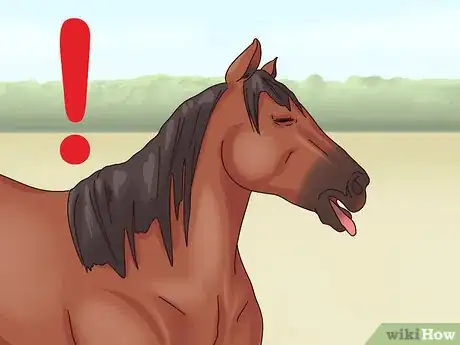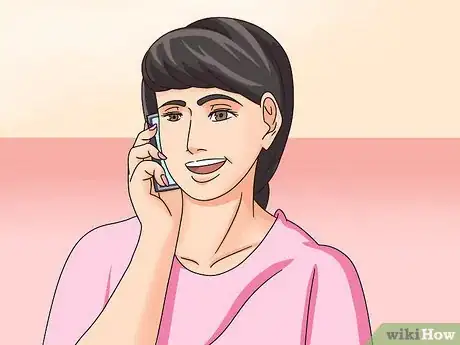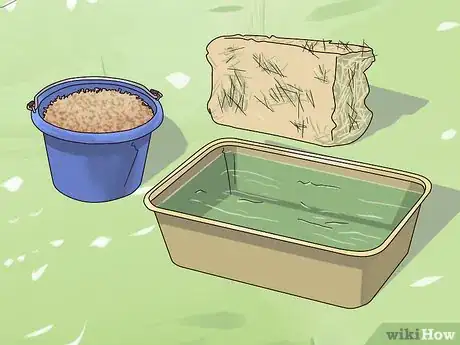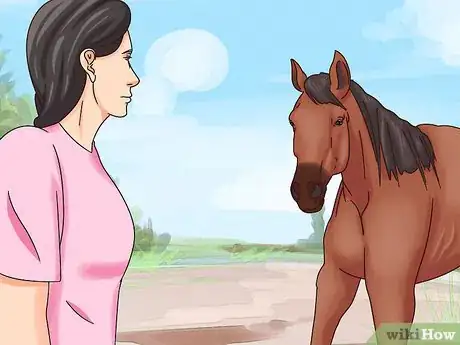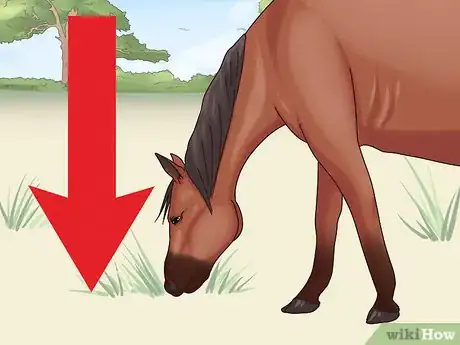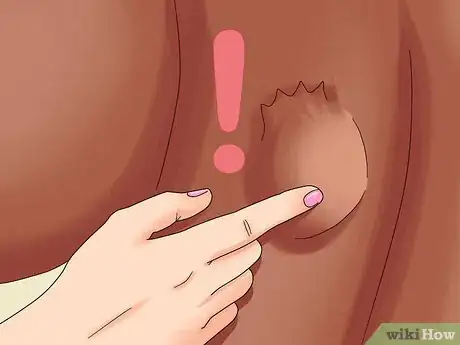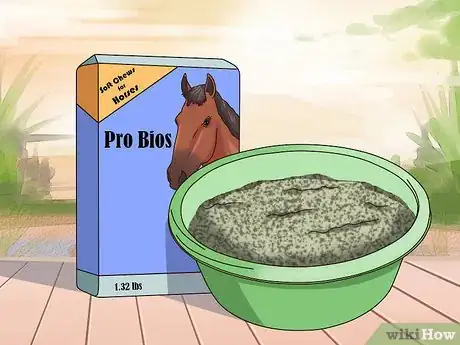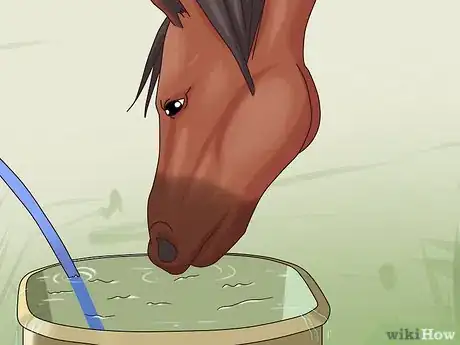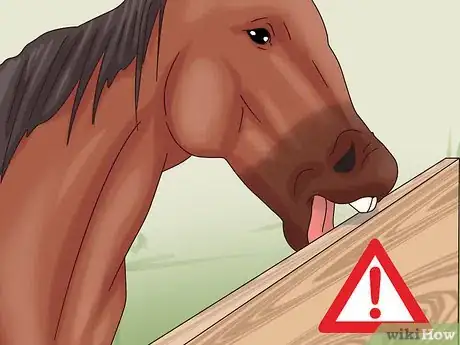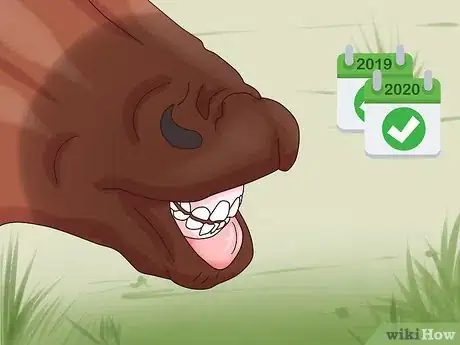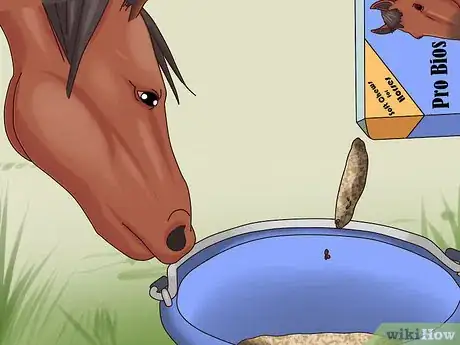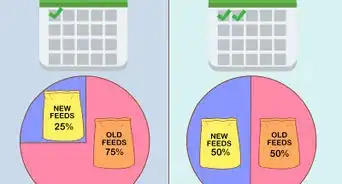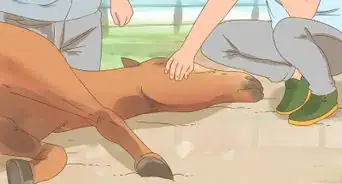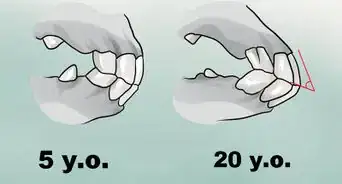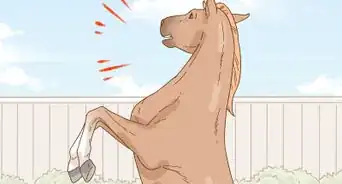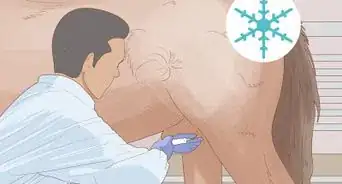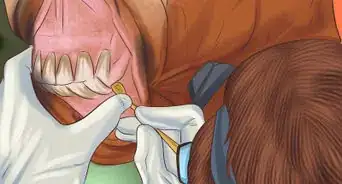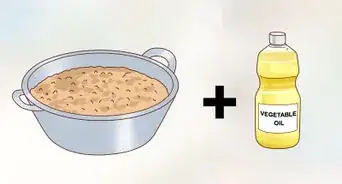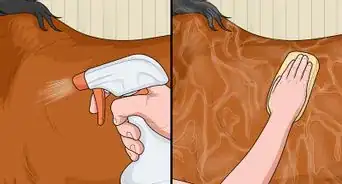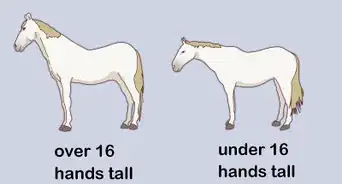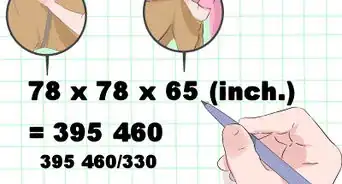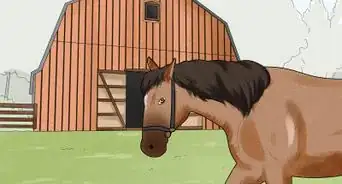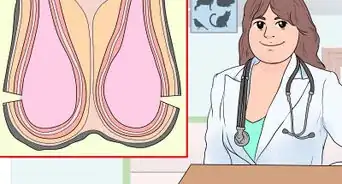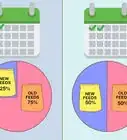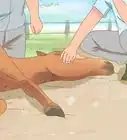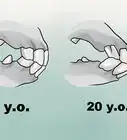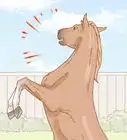This article was co-authored by Pippa Elliott, MRCVS. Dr. Elliott, BVMS, MRCVS is a veterinarian with over 30 years of experience in veterinary surgery and companion animal practice. She graduated from the University of Glasgow in 1987 with a degree in veterinary medicine and surgery. She has worked at the same animal clinic in her hometown for over 20 years.
wikiHow marks an article as reader-approved once it receives enough positive feedback. In this case, 100% of readers who voted found the article helpful, earning it our reader-approved status.
This article has been viewed 157,803 times.
Choke occurs in horses when food becomes stuck in the esophagus. The food may become stuck when a horse eats too quickly or cannot properly chew its food before swallowing. Although choke usually resolves on its own, it can cause serious and potentially life-threatening complications. Because of the risk of these complications, great care must be taken when a horse is choking.
Steps
Detecting When a Horse is Choking
-
1Look for common signs that a horse is choking. One common sign is a lump in its neck. There are also several things that a horse will actually do when it is choking. Despite showing these signs, be aware that a horse may still try to eat or drink.
- Coughing
- Yawning
- Arching neck
- Drooling
- Difficulty breathing
-
2Call the veterinarian immediately. If you are not the horse's owner, contact the owner to let them know about the situation.Advertisement
-
3Prevent the horse from eating or drinking anything else. Choke will get worse if a horse continues to eat and drink, so do your best to keep the horse from any potential food and drink sources.
- Move the horse to a stall that does not contain any bedding. The horse may want to eat the bedding, so it will be important to remove all potential food sources.
- A horse will become dehydrated quickly, but do not to allow it to drink water from a bucket.
-
4Keep the horse as calm as possible. A horse may become increasingly anxious and restless if it is choking, which could put you in danger of injury. Do not approach the horse if your safety is at risk.
- If necessary, the veterinarian will sedate the animal to calm it down.
-
5Keep the horse standing with its head down. This will help prevent food from going into the horse's airway, which could cause respiratory complications.[1]
- Keeping the horse standing will also keep it from giving up, which could easily happen if the horse lies down.
- If you have a head-collar/halter on hand, use it to hold the horse and keep it standing. However, do not attempt to hold the horse if your safety is at risk.
-
6Touch the horse's neck to find the lump. The lump will indicate where the food has become stuck in the esophagus. Do not touch the horse's neck if the horse is too restless or anxious to approach.
- If the horse will allow you to touch its neck, try to gently massage the lump to assist in its removal.
- If the object is something soft like an apple, it will dissolve after 5-15 minutes. If it is not gone by then, it will probably be something harder or more dense, like a carrot.
- Blockages can also occur from dry foods such as sugar beet. If not soaked properly, dry foods will swell and cause the same result. This can only be removed by the assistance of a veterinarian with proper equipment.
Preventing Choke
-
1Feed your horse soft foods for the next week or two following an episode of choke. An example of soft food is water-soaked pelleted feed.
-
2Keep a steady supply of water for your horse. Water will help the horse wash its food down, making it less likely that the food will get lodged in the esophagus.
-
3Prevent your horse from cribbing (chewing or licking a wood structure). Horses may choke if what they crib on comes off and they swallow it.
-
4Schedule twice yearly dental care. Keeping your horse's teeth properly filed will help ensure adequate chewing of food before swallowing.[2]
-
5Change your horse's eating habits. Changing the consistency of the food, as well as changing how your horse eats, can help prevent choke.
- Feed smaller portions more frequently.
- Soak pelleted feed in water for older horses that may not be able to chew as well and would thus be more prone to choke.[3]
- Cut food such as apples into smaller pieces. Also, cut carrots into strips instead of circles.
- Place rocks into your horse's feeder. By having to pick through the rocks to get to the grain, a horse will slow down its eating.[4]
- Schedule more frequent turnout time so that your horse has the chance to graze between meals; increased grazing may slow down how quickly your horse eats grain.[5]
Warnings
- If not resolved quickly, choke can cause serious damage to the lining of the esophagus and can also lead to respiratory complications. If this happens, your veterinarian will need to administer more intensive treatment procedures and medications.⧼thumbs_response⧽
- Do not give any medications to the horse unless instructed to do so by your veterinarian.⧼thumbs_response⧽
- Do not attempt to get near a thrashing horse, even in an emergency. You will put your self at risk of serious injury (or worse) if you do so.⧼thumbs_response⧽
References
About This Article
If you think your horse is choking, immediately call the vet. Then, while you wait for the vet to arrive, keep the horse away from any potential food and drink sources as this could make the choke worse. Instead, move the horse to an empty stall, and try to keep it as calm as possible. Additionally, if the horse isn’t too agitated, touch its neck to find the lump, which will indicate where the food has lodged. You can then try to gently massage the lump to help with its removal. For more tips from our Veterinary co-author, including how to prevent choke, keep reading!
